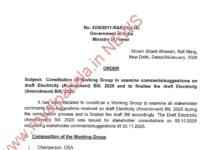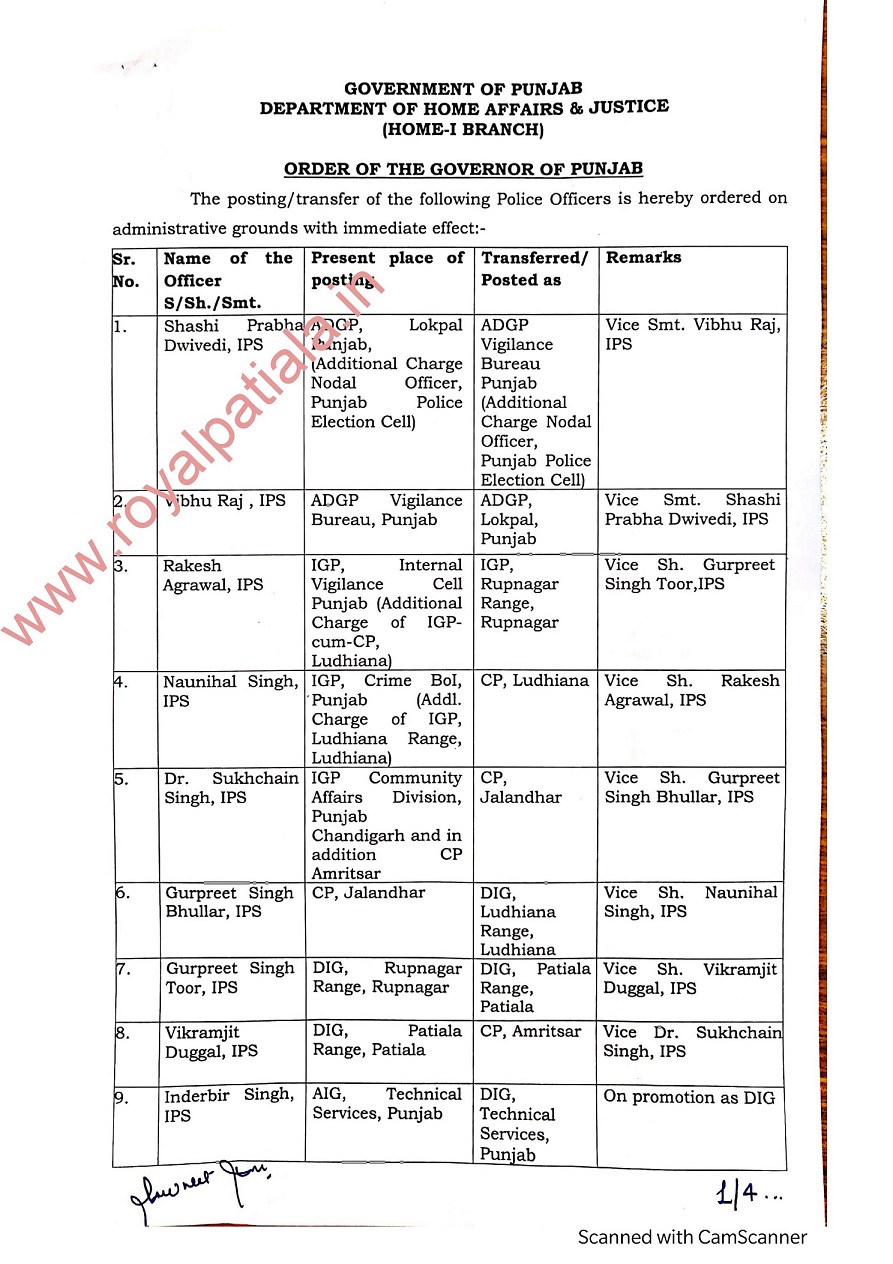IAS officer appointed as the new RBI governor
Kanwar Inder Singh/ royalpataila.in News/ December 9,2024
Revenue Secretary Sanjay Malhotra has been appointed Governor of the Reserve Bank of India (RBI). He will take charge from Wednesday for three years, the government said in a statement.
Sanjay Malhotra succeeds Shaktikanta Das who was appointed as the 25th governor of the RBI on December 12, 2018, after the abrupt exit of Urjit Patel. He was granted an extension after completing three-year terms in office.
Sanjay Malhotra is an Indian Administrative Service Officer of 1990 Batch Rajasthan Cadre. He is an Engineering Graduate in Computer Science from the Indian Institute of Technology, Kanpur and has a Master’s in Public Policy from the Princeton University, USA.
With demonstrated leadership and excellence in his career of over 33 years, Shri Sanjay Malhotra has worked in multifarious sectors including power, finance and taxation, information technology, mines etc. Presently he is Secretary (Revenue) in Ministry of Finance. In his previous assignment, he held the post of Secretary in Department of Financial Services under the Ministry of Finance, Government of India.

He has extensive experience in finance and taxation at the State as well as the Central Government. As a part of his present assignment, he plays an instrumental role in tax policy formulation in respect of direct and indirect taxes.
IAS officer appointed as the new RBI governor. Before he was appointed Revenue Secretary, he was Secretary in the Department of Financial Services. Malhotra was appointed as revenue secretary in October 2022, succeeding Tarun Bajaj, who retired that year.
How is the RBI Governor appointed?
The central government appoints the head of India’s central bank under the provisions of the Reserve Bank of India Act of 1934. The RBI governor is appointed by the Appointments Committee of the Cabinet (ACC), chaired by the Prime Minister.
The Department of Financial Services (DFS) in the Ministry of Finance shortlists candidates based on qualifications, experience, and suitability. Experts, bureaucrats, and economists, as well as various sources, also seek recommendations.
While the RBI Act does not mention specific, detailed eligibility criteria, the government considers persons with expertise in economics, banking, finance, or public administration.














